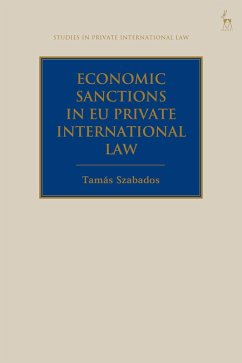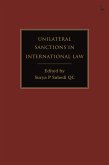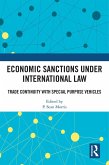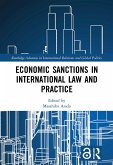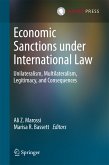Economic sanctions are instruments of foreign policy. However, they can also affect legal relations between private parties - principally in contract. In such cases, the court or arbitration tribunal seized must decide whether to give effect to the economic sanction in question.
Private international law functions as a 'filter', transmitting economic sanctions that originate in public law to the realm of private law. The aim of this book is to examine how private international law rules can influence the enforcement of economic sanctions and their related foreign policy objectives.
A coherent EU foreign policy position - in addition to promoting legal certainty and predictability - would presuppose a uniform approach not only concerning the economic sanctions of the EU, but also with regard to the restrictive measures imposed by third countries. However, if we examine in detail the application of economic sanctions by Member States' courts and arbitral tribunals, we find a somewhat different picture. This book argues that this can be explained in part by the divergence of private international law approaches in the Member States.
Private international law functions as a 'filter', transmitting economic sanctions that originate in public law to the realm of private law. The aim of this book is to examine how private international law rules can influence the enforcement of economic sanctions and their related foreign policy objectives.
A coherent EU foreign policy position - in addition to promoting legal certainty and predictability - would presuppose a uniform approach not only concerning the economic sanctions of the EU, but also with regard to the restrictive measures imposed by third countries. However, if we examine in detail the application of economic sanctions by Member States' courts and arbitral tribunals, we find a somewhat different picture. This book argues that this can be explained in part by the divergence of private international law approaches in the Member States.

